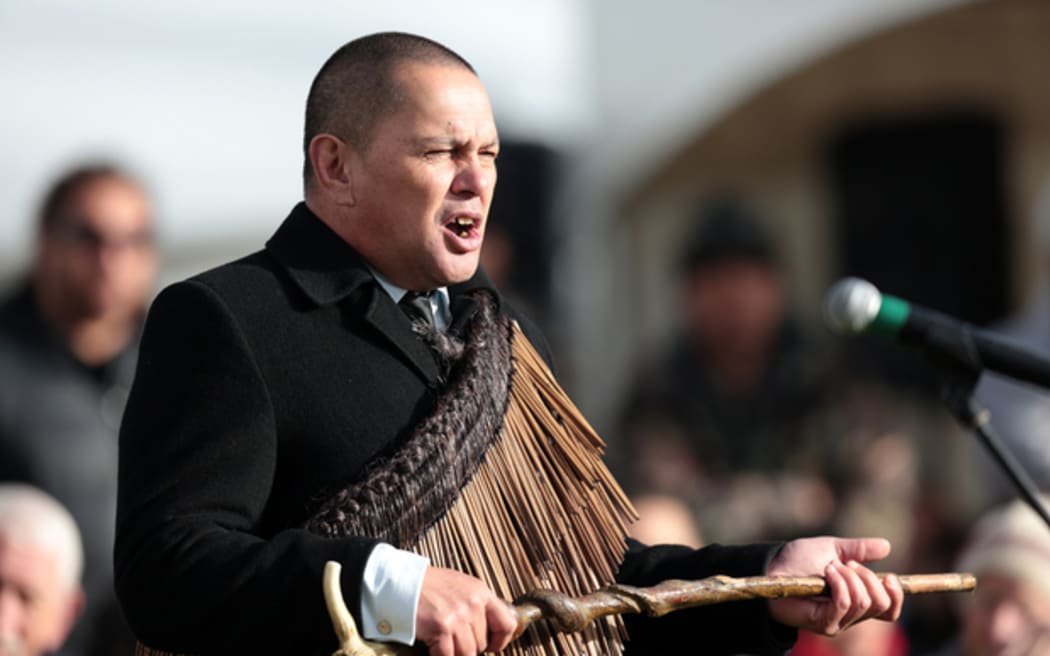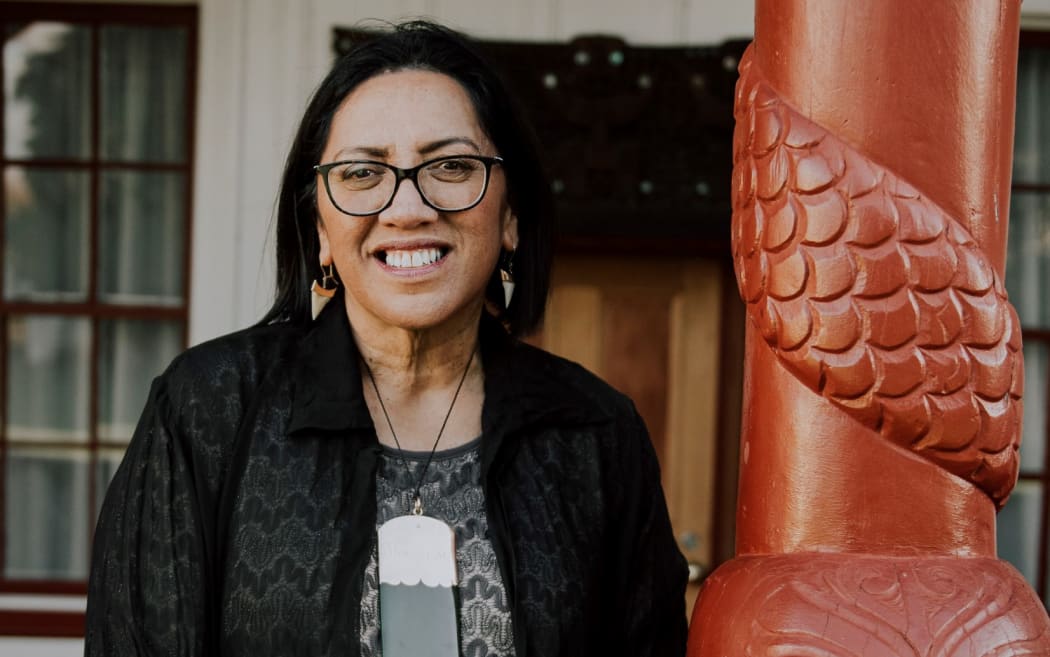
Te Pou Tupua, the human face and voice of the Whanganui River, Turama Hawira Photo: LDR / Supplied
A delegation of Whanganui River Māori is travelling to the United States to support North American Indigenous leaders and tribes of the under threat Colorado River.
The delegation to crisis talks in Arizona is representing Te Awa Tupua, the Whanganui River. It includes the two people appointed by the river tribes as Te Pou Tupua, the human face and voice of the Whanganui River.
Over 10 days Keria Ponga, Turama Hawira and the rest of the delegation will meet with many of the 30 tribal nations who have historic ties to the Colorado River basin in what is now the United States and Mexico.

The exchange will focus on the plight of the dwindling Colorado River. The waterway is in decline due to chronic overuse, including increasing water take for irrigation, and the effects of climate change. There are fears the river system could collapse.
Te Pou Tupua told Local Democracy Reporting the talks with tribes and nations from Saturday 11 February would continue the earlier work of Māori and Native American indigenous leaders to urge a fundamental rethinking of how water and rivers are managed.
“In 2020, their leaders came to Aotearoa to meet with Whanganui iwi. They were concerned for their threatened Colorado River,” Ponga said.
“We had achieved a globally recognised victory for Te Awa Tupua and they wanted to learn from us. They also wanted to share indigenous ways of governance and protection of our natural world.
“We are travelling to [Arizona] to continue our conversation. Together we want to offer an alternative to a colonial mentality centred on resource-taking.”
Te Pou Tupua will travel from Peach Springs, Arizona, through to the San Xavier District to meet the Hualapai, Colorado River Indian (Mohave, Chemehuevi, Hopi and Navajo), Fort Mojave Indian and Pascua Yaqui tribes, the Gila River Indian Community and the Tohono O’odham Nation. They will also connect with the Inter Council of Arizona made up of 30 tribal chiefs.

Te Pou Tupua, the human face and voice of the Whanganui River, Keria Ponga. Photo: LDR / Supplied
Ponga and Hawira will be supported by Wiari Rauhina, a representative from the advisory group Te Karewao; Rāwiri Tinirau, deputy chair of river tribal authority Ngā Tāngata Tiaki o Whanganui; Raukura Naani Waitai, a hapū advisor to the collaborative Whanganui port upgrade Te Pūwaha; and Te Pou Tupua taituarā Mitch Roderick-Hall.
Hawira said the precedent for working with other indigenous nations was set in the time of the late Whanganui River kaumātua Titi Tihu, John Tahuparae, Matiu Mareikura, Niko Tangaroa and Sir Atawhai Archie Taiaroa.
“Their vision was always to set up a tribal whare wānanga of learning to cater for internal, for ngā hapū katoa o te awa o Whanganui. There was also this other level of thinking: act local, think local.
“And so perhaps one of the aspirations in entering into this relationship is that through the exchange and in the interests of intergenerational succession of leadership amongst our people, the moemoea [dream] could be the establishment of an indigenous whare wānanga of environmental excellence.”
In 2020, the short film ‘From the Mountain to the Sea’ captured interaction between Whanganui River Māori and Native American indigenous leaders during their visit to Aotearoa.
A virtual gathering of indigenous leaders from North America and Aotearoa in 2021 included policy makers and environmental activists.
The Whanganui delegation will next week share the river experience at the forum, ‘A Meeting of Sacred Waters’ at Heard Museum in Phoenix, Arizona. The hybrid (live and virtual gathering) forum aims to share indigenous perspectives on reinstating the health of the world’s water sources and, more widely, to restore balance between humanity and the environment.
Hawira, Tinirau, Waitai and Rauhina will speak about Tupua Te Kawa, the set of indigenous values that reflect the tribal relationship with the river and that, following legislation in 2017, now guides all decision making in relation to the river, including by local and central government.
“We want to share knowledge and insights into our experiences with protecting the health and wellbeing of Te Awa Tupua,” Ponga said.
“We can work with each other to address challenges we have in common to uplift resilience.”
Whanganui River Māori could also learn from the Colorado River tribes, who have had experience of water reform for the past decade.
“They have insights around water entities and negotiated water allocation. We are only in the beginning of this phase. Water allocation, electricity diversions, damming … the Colorado River is dying – what can we learn from the tribes over there?”
The delegation will be in Arizona from 11 to 19 February. The forum ‘A Meeting of Sacred Waters’ will be streamed online on 17 February (NZ time).
Local Democracy Reporting is Public Interest Journalism funded through NZ On Air